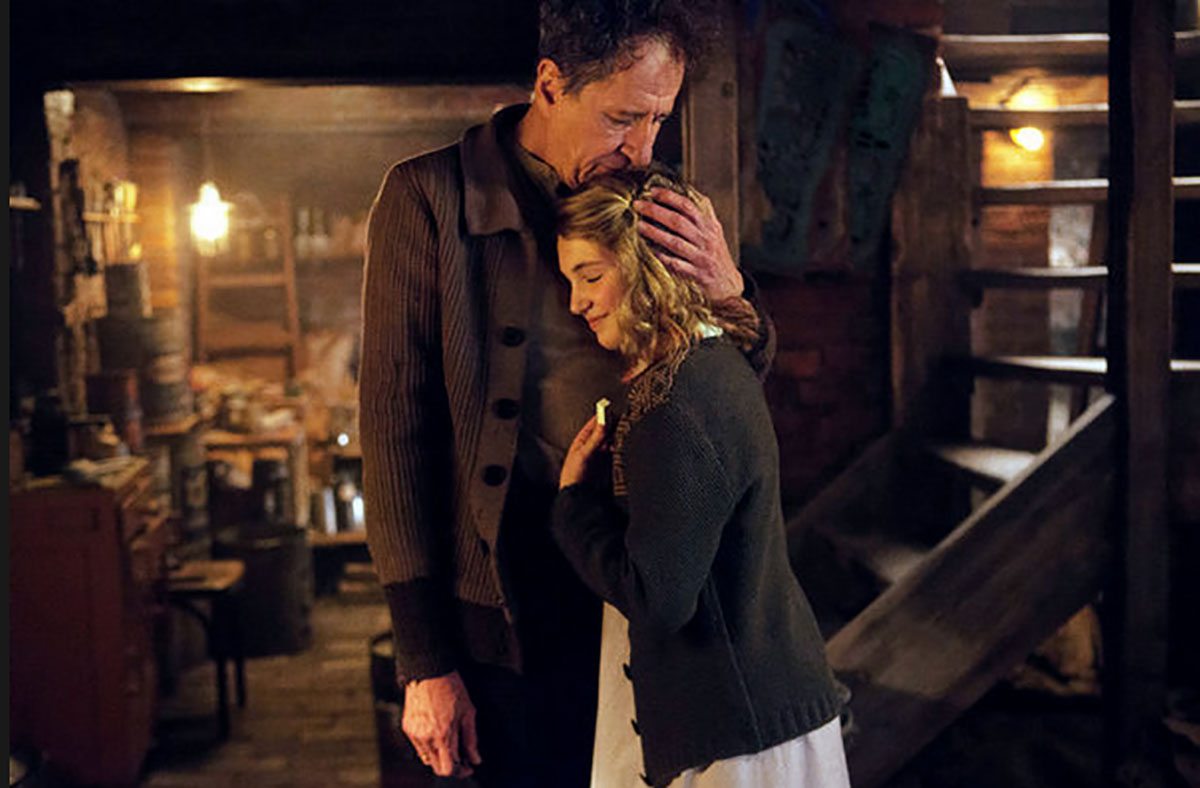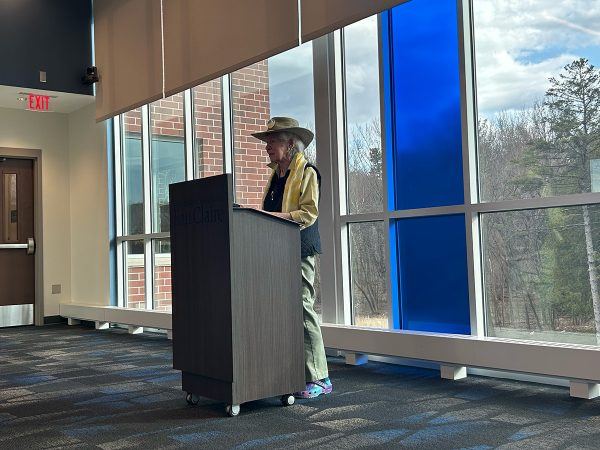‘The Book Thief’ in review
The Nazi Germany era film, based off a celebrated book, is a hit-and-miss
More stories from Lara Bockenstedt
Photo by SUBMITTED
The performances by Sophie Nelisse and Geoffrey Rush as foster father and daughter provided warmth to a rocky film.
The first copy I ever held of “The Book Thief” was missing both the front and back cover, with the binding taped together. Ink was spent copiously within, where favorite quotes were emphasized and underlined.
The owner of this book, written by Markus Zusak, had marked it as beloved. Many who read “The Book Thief” are fierce fans. They know each detail. When it was announced that a film was to come of it, fans waited in anticipation.
The film presented to them, while faithful in large part to the story, diluted the magic of the novel and disenchanted with its hands-over-eyes approach to Nazi Germany.
Brian Percival of Downton Abbey directed “The Book Thief” the story of Liesel Meminger (Sophie Nelisse) who promptly loses her family due to their communist affiliations. She is adopted by Hans and Rosa Hubermann (Geoffrey Rush and Emily Watson), inhabitants of Heaven Street. Rush and Watson strike constellations of brilliance within the film as flawed parents making do in bewildering times.
The cast performed with ease and charm; the band of characters from Heaven Street is intended to show a microcosm of the everyday citizens of Nazi era Germany.
Rudy (Nico Liersch) is the fastest kid in his class, with dreams of being as fast as Jessie Owens. There too is Max, a Jew hiding in the Hubermann’s basement, whose friendship spurs poetic moments with Liesel. Though Liersch is the only German actor in the cast, the accents and occasional use of German words feels natural.
If the film critique could be stoppered at performance, “The Book Thief” would find its niche. However, in an attempt to make a childhood-less story presentable to children, the film sputters to a halt.
Death himself sporadically narrates the film. His palpable sorrow in the book makes for surprising quotes like: “I am haunted by humans,” and “even death has a heart.” In the film, these instances seem incongruous and softened. There is no sense to death’s sudden appearances.
In one pivotal scene, prisoners are being marched through the streets of the city center. Liesel panics and attempts to find Max. For some reason or another, the writers decided to not put him among the crowd.
I watched the film with the friend whose book I had originally borrowed. She took issue with this portrayal of the scene. For Zusak, she said, Liesel finding Max and being ripped from him is the climax of the story. As such the film misses its full story arch. There are absentee moments like this throughout the film, which leave the audience feeling as though they’re only seeing half of what’s going on.
John Williams composed the score, which offers contrapuntal musical points, but never quite rose to the occasion. It lacks the memorable melodies his brand is known for.
It’s a tricky art to translate book to film. This book was made even more so due to its content. Ultimately, the producers of the film showed their loyalty to the oscar winning Nazi era film formula.
You can decide if it lives up to your expectations: “The Book Thief” will play at Woodland Theater this Friday at 7 p.m., Saturday at 2 p.m. as well as 7 p.m. and Sunday at 2 p.m.










